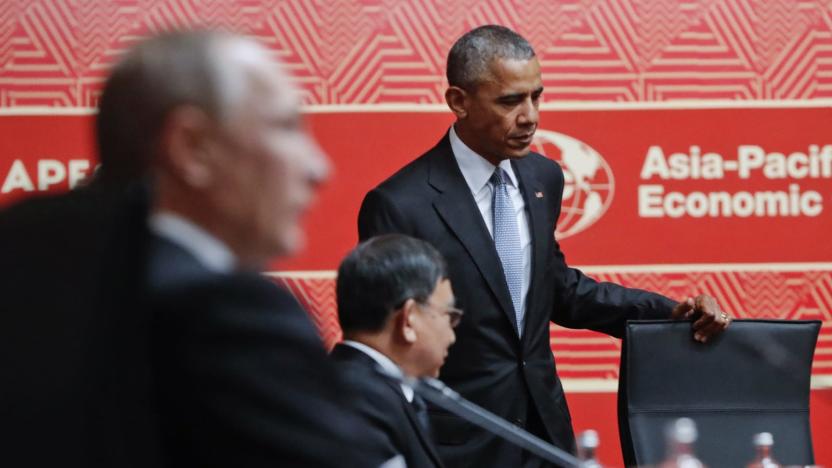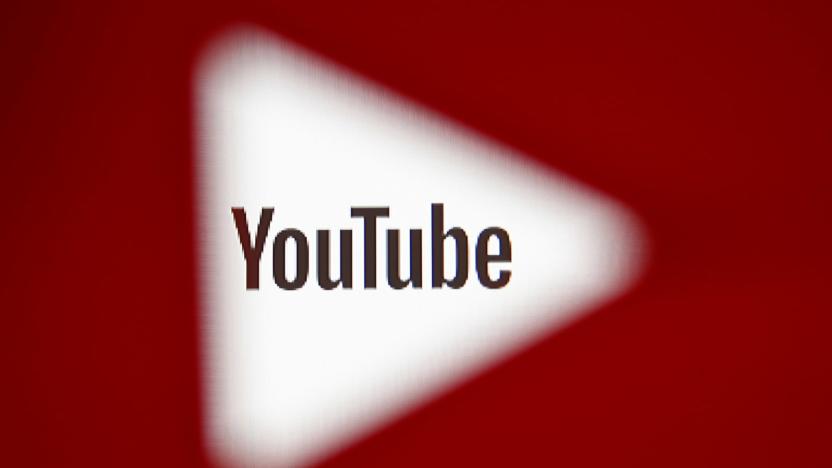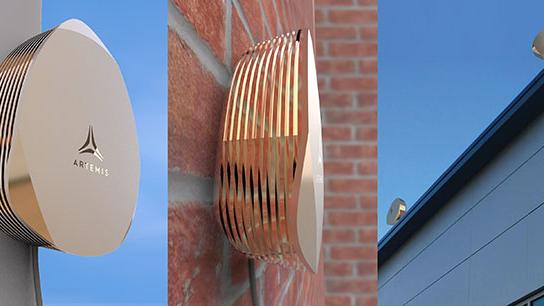interference
Latest

Senate: Obama Admin. wasn't prepared to handle Russian interference
Today, the Senate Select Committee on Intelligence released a report (PDF) detailing the Obama administration's response to Russia's meddling in the 2016 election. The report says the Obama administration was not well-prepared to handle the unprecedented election interference and that the administration suffered from "paralysis of analysis."

DOJ report finds foreign meddling had no impact on midterm elections
If attempts at election meddling had any tangible effect on the US midterms, you won't hear about it from some officials. The Departments of Justice and Homeland Security have submitted a joint report to President Trump saying there was no evidence a foreign government or agency had a "material impact" on the infrastructures of the 2018 vote, including campaigns and political bodies. The actual conclusions are classified, but they're consistent with what the government said after the elections, the Justice Department said.

YouTube found 'no interference' from Russia during Brexit vote
YouTube says that it hasn't found any evidence of Russian interference during the UK's Brexit vote in 2016. Members of parliament aren't satisfied, however, and are asking for the video network to examine clips of Russian origin, not just ads, according to The Guardian. For its part, YouTube says it will do a more comprehensive review.

FCC wants your help understanding radio noise
Interference from radio noise remains a big problem... and it's tricky enough that the FCC wants your help understanding the issue in the first place. The agency has put out a call for public input that should not only determine the scale of radio noise problems, but design the studies needed to measure them. It wants to identify the main sources of this noise, where it's most likely to happen and whether it varies based on time. It's particularly concerned about "incidental" noise from devices that aren't meant to emit radio frequencies, like motors or power lines.

Shure wants dedicated spectrum for wireless audio gear in the UK
The proliferation of mobile phones is great, and so is the availability of 4G in the UK. However, dwindling spectrum available for wireless audio gear could cause problems at your local music venue or playhouse -- especially in the UK. Shure, the pro audio company, wants a dedicated radio spectrum for wireless microphones, in-ear monitors and other tech. As the company puts it, the best area for the audio gadgets to work is UHF bands IV and V or 470 – 854MHz. In the UK specifically, the 800MHz band has been approved for use by 4G networks and 700MHz is next. Those bands were made available after television service switched from analog to digital a few years back.

Safety zealot hid a phone jammer in his SUV to stop other drivers taking calls
If you happen to notice a second-hand Toyota Highlander being offered for a quick sale in Seffner, Florida, you'll know exactly who it belongs to. A local man, Jason Humphreys, has been given 30 days to pay a $48,000 fine after being caught radio-handed with a high-powered phone jammer hidden under his SUV's front passenger seat. When he was pulled over by a squad of FCC agents and police officers, who had spent days tracking the source of the wideband interference emanating from his vehicle, he reportedly told them that he was "fed up with watching cell phone usage while people were driving." Unfortunately for Humphreys, the state of Florida deems it legal for motorists to engage in phone conversations while they're on the move, whereas it severely frowns on the use of unlicensed jamming equipment that can disrupt vital communications between emergency services. The only glimmer of hope for this grumpy vigilante is if he can write to the FCC and somehow stall the fine, but even then he'll likely still face a separate case raised by an even grumpier Sheriff's office. [Image credit: ABC Action News]

OnLive creator's next project could put an end to cellular reception woes
Remember Steve Perlman? The serial entrepreneur has moved on from OnLive's messy transition and launched an enterprise called Artemis, with the lofty goal of fixing the cellular congestion plaguing modern carriers. Called pCell, it works by forcing frequencies that normally interfere and bog down a network to gang up for better reception, instead. Congestion could be thus relieved by adding more antennas, a strategy that doesn't work with current networks due to crosstalk. A demonstration to the New York Times showed Netflix HD and 4K videos streaming to at least a half dozen devices in the same room over a local LTE network, a feat the company said would be impossible on current networks. There's no word from any US carriers about any plans to adopt the tech, but Verizon did say that it was aware of it. In the meantime, Artemis said large scale tests will start in San Francisco later this year, with a commercial launch by the end of 2014. Check the video after the break for more.

Testing for electromagnetic interference at Samsung's EMC lab (video)
Samsung's EMC Laboratory is right in the middle of its huge "Digital City" compound in Suwon, Korea. This site goes through roughly 4,000 products a year, with different rooms tasked with testing different sections of Samsung Electronics' admittedly broad range. What you see above is a 75 by 59 feet chamber set up for the electromagnetic interference test, with three antennas pointed at a yet-to-be-released TV (not shown in the photo for obvious reasons). All of this is simply to gauge precisely how much interference the product outputs, to ensure it doesn't exceed certain levels. Do read on if you want more detail -- we've also got a video tour waiting for you.

Shift the city's architecture in cyberpunk stealth platformer Interference
French artist Anthony Beyer launched an Indiegogo project for Interference, a stealthy puzzle-platformer for PC, Mac and Linux. The game has players joining a cyberterrorist organization called The Interferers, an underground group that are opposed to a totalitarian government. The group grants players access to a device known as The Glitcher, which allows players to slide pieces of the city Arachnopolis around to create paths and avoid enemies. Interference relies heavily on stealth mechanics similar to that of Klei's Mark of the Ninja, though Beyer said he wants to create his own game "with a fully-realized and immersive universe that isn't disjointed by levels." Players will unlock districts of the city similar to the Metroid and Castlevania series, but can freely traverse the open parts of Arachnopolis at will. Beyer is seeking €25,000 ($33,475) by December 11 to fund the game's development, and plans to deliver it by June 2014. He also made a pre-alpha demo available to download for both PC and Mac owners, found on the game's website. [Thanks, Andrew!]

LightSquared pitches new plans to FCC in attempt to end GPS interference hex
If you thought filing for Chapter 11 bankruptcy was the final chapter in LightSquared's wireless network saga, you'd be wrong. Hedge-fund manager Philip Falcone is back at the FCC's doorstep with yet another proposal, which he hopes might snatch the maligned network from the jaws of GPS interference-related troubles. Two filings placed with the commission apparently outline plans to use its broadband network in a way that it believes won't interfere with GPS signals, along with the 5MHz of spectrum that are known not to cause any issues. Along with the proposed changes, LightSquared is reportedly set to ask for more time to have exclusive rights to propose a reorganization plan. If granted, this could finally mean some progress for the beleaguered project, but with investors worried that money being spent on this could be better-placed back in their pockets, Falcone will have everything crossed, while the FCC deliberates the situation.

AT&T suspends 2G in Oakland after cell towers step on police frequencies
An $18 million dollar radio system purchased by the Oakland Police Department has been giving static instead of 10-30s in progress, and the interfering party has now been collared -- AT&T. Local officials and the FCC told the mobile network that its towers were blocking police communication, particularly when patrol cars were within a quarter-mile of one. However, some local pundits have said the problem is of the PD's own making, claiming it invested in an inferior system and didn't check carefully enough for interference before making the buy. As a result, AT&T has temporarily shut down 2G frequencies around the city -- giving the telecom giant an unplanned sneak preview of the upcoming phase-out.

Forthcoming 4G networks could interfere with TV in 10 percent of UK homes
If you live in the UK and a 4G wireless tower is going up right next to your house, you might want to hold off on the excitement. LTE networks occupying the 800MHz spectrum could cause some serious interference (sound familiar?), capable of knocking out around two million households' free terrestrial TV channels. An independent company has been set up to lessen the effects of the wayward waves and is installing government-subsidized filters in residences across the country. But even its valiant efforts could leave up to 8,500 homes without Freeview, as non-traditional antenna setups aren't covered by the public fund. Meanwhile, eager Brits continue to patiently line up for some kind of semblance of a 4G network.

Sprint to LightSquared: it's over
The writing's been on the wall for a few weeks and now Sprint's officially severing its partnership with LightSquared. Philip Falcone's project had a contractual deadline of March 15th to gain regulatory approval for its LTE service on the 1.6GHz spectrum, which was shot down by the FCC in February. A day later, Big Yellow exercised its right to pull the plug, paying back $65 million in prepayments and continuing to build out a LTE network on its own. Nextel's better half didn't slam the door shut entirely, however. If, by some miracle (and it would be a big one), the company can change Julius Genachowski's mind, it'd certainly consider teaming up again, so no hard feelings, eh? For its part, LightSquared has issued a formal response, saying that the contract termination is in "the best interests of both parties" and "not unexpected given the regulatory delays." On the upside, the company has had its coffers swelled by a not inconsiderable $65 million, which is the first good news it's had for a while.

Sprint kicks LightSquared to the curb as it contests FCC ruling
Sometimes when you start heading downhill, it can be hard to stop. Take LightSquared for instance -- not only were its LTE plans repeatedly contested and eventually shot down, but now Sprint, its long time partner, will indeed be cutting ties with the wireless start-up. According to the Wall Street Journal, the move will officially be announced on Friday, leaving LightSquared alone with its dreams. A representative from the start-up says its filing a 150-page defense of its network on the same day, hoping to refute the Feds' claims that its network interferes with GPS signals. The outfit made no comment on Sprint's plans, but mentioned that it has enough funds to operate on its own for several quarters. We'll let you know when Sprint officially drops the ball.

Intel puts CPU and WiFi radio together on same chip, with proper shielding of course
It's little notches like these that could eventually carve out a big Intel-shaped niche in the mobile universe. What you're looking at is a prototype chip codenamed 'Rosepoint' that somehow crams a digital WiFi radio and a dual-core Atom CPU onto the same piece of silicon. Interference would normally make such proximity impossible, but Rosepoint incorporates new anti-radiation and noise-cancelling shielding to prevent the components from corrupting each other. The aim isn't just to shrink everything, but also to deliver "state of the art power efficiency" by removing unnecessary circuitry. Intel even claims it can fit the RF antenna onto a chip too, but it doesn't want to show that off just yet. Too many prying eyes.

LightSquared grasps at straws, slams FCC in a statement
To say it's been a bumpy road for LightSquared over recent months would be an understatement. However, developments this week could see the beleaguered company reach a critical fork in the road. On Tuesday, the National Telecommunications and Information Administration confirmed that LightSquared's planned network would indeed interfere with global positioning systems, and that there was no "practical way" to work around this. The FCC subsequently proposed to indefinitely suspend LightSquared's authority to migrate its satellite spectrum to land-based use. Unsurprisingly, this evoked a less than cheerful response from the troubled startup, which slammed the FCC in a statement, claiming it's "harmed not only LightSquared, but also the American public" and accusing the committee of "the height of bureaucratic irresponsibility." The following day, the Wall Street Journal reported that firm was now making a last-ditch effort to revive hope, by attempting to exchange its wireless licenses for ones similar to those operated by the Department of Defense. Reuters has since reported that contrary to rumors that the company was seeking restructuring advice, hedge fund manager Philip Falcone claims that filing for bankruptcy would be off the cards, defiantly stating "there are other ways around this." As to what these other ways include we're as yet to see, but we admire the optimism.

Sprint may have dug itself a $65 million hole with LightSquared partnership
Well, if there's a silver lining for LightSquared in the debacle that has been its attempt to launch a nationwide LTE network, it's that it should be getting a $65 million check from Sprint if everything collapses. The former WiMAX champion and LTE convert may have to return the cash it received as part of a 15 year agreement if the FCC doesn't approve the 4G venture by a March deadline. There is still a chance for an appeal of the commission's decision to reject LightSquared's bid to build an LTE network. But, with the company's inability to solve its vexing GPS issues and increasingly desperate looking maneuvers, we wouldn't be surprised if the check was already in the mail.

FCC to dash LightSquared's bid for LTE glory
Many of us have seen this coming for some time now, but the FCC issued a statement late today that it intends to reject LightSquared's bid to create a wholesale LTE network on the basis that interference with existing GPS devices is unavoidable. The news follows a similar recommendation from the NTIA that was delivered to FCC Chairman Julius Genachowski today, which concluded "there are no mitigation strategies that both solve the interference issues and provide LightSquared with an adequate commercial network deployment." For its part, the upstart wireless provider responded that it "profoundly disagrees" with the NTIA's conclusions and remains committed to finding a solution -- easier said than done. You'll find that statement in its entirety after the break.

LightSquared gets desperate, seeks regulatory changes to satisfy GPS debacle
If we were the betting type -- and hell, some of us really are -- we'd wager a crisp ten spot that LightSquared isn't going to assuage the FCC's concerns over those pesky GPS interference issues in the next few weeks. After previously stating that the interference test reports were rigged by GPS insiders, the upstart LTE network is now getting political with its argument and is calling on the FCC to institute new standards for GPS equipment. LightSquared contends that current GPS devices on the market are poorly designed and purposefully encroach on the company's licensed spectrum. Of course, this change would do little to remedy the millions of interference prone / (causing?) devices on the market, but LightSquared notes that, by the FCC's own admission, GPS receivers must "reasonably discriminate against the reception of signals outside their allocated spectrum." With the company's latest argument flying high atop the flagpole, it begs the question, will anybody salute? You'll find LightSquared's statement in its entirety after the break.

LightSquared says obsolete devices used in 'rigged' testing of its LTE network
LightSquared's encountered many bumps on the road to winning clearance for its LTE network, but it's not ready to throw in the towel just yet. During a conference call today, Jeff Carlisle (Executive Vice President for Regulatory Affairs), Geoff Stearn (Vice President of Spectrum Development) and Ed Thomas (Former FCC Chief Engineer, now a LightSquared consultant) refuted the government's claims that the network interferes with GPS receivers, lambasting the use of "obsolete" devices and other tests that don't "reflect reality." The LightSquared executives went as far as calling the entire process "rigged" and "shrouded in secrecy." In their opinion, the testing was "set up to be a failure," thanks in part to the involvement of GPS manufacturers. Moreover, when questioned about what the next step would be, the company stated that all it'd like are "valid scientific results," the use of non-obsolote devices and a "fair process with proper testing." Needless to say, we can expect the drama to continue over the coming months -- after all, LightSquared is claiming it's got enough money to keep the battle going for at least a few quarters yet.














